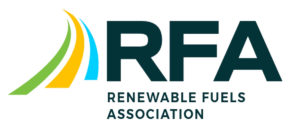 The U.S. Environmental Protection Agency (EPA) has announced it is denying petitions for small refinery exemptions for past compliance years, the so-called “gap-filling” petitions for the 2011-18 compliance years.
The U.S. Environmental Protection Agency (EPA) has announced it is denying petitions for small refinery exemptions for past compliance years, the so-called “gap-filling” petitions for the 2011-18 compliance years.
“This decision follows President Trump’s promise to promote domestic biofuel production, support our nation’s farmers, and in turn strengthen our energy independence,” said EPA Administrator Andrew Wheeler. “At the EPA, we are delivering on that promise by following the rule-of-law and ensuring 15 billion gallons are blended into the nation’s fuel supply.”
The EPA announcement also noted that the agency is “moving to update E15 labels to ensure consumers have informed choices at the pump and clarify the ability of existing fuel infrastructure to support expanded E15 use.”
However, much of the responsibility regarding labels falls to state agencies, EPA encourages they update them as well and stands ready to support them. EPA continues to actively engage with stakeholders to expand the number of approved fuel pathways, adding diversity to the biofuel mix in the United States.
EPA also cited the Tenth Circuit Court’s decision from January as an important consideration in rejecting the waiver petitions. Importantly, EPA is applying these petition denials nationally. The Renewable Fuels Association (RFA) led the litigation in the Tenth Circuit, while the National Corn Growers Association, National Farmers Union, and American Coalition for Ethanol were co-petitioners.
“The petitions were never anything more than an absurd and bizarre attempt by the refineries to circumvent the Tenth Circuit Court’s decision in the Renewable Fuels Association v. EPA case,” said RFA President and CEO Geoff Cooper. “This should serve as the final nail in the coffin of these gap-year petitions, and we are eager to put this dark and sordid chapter in the history of the RFS behind us once and for all.”
“Asking for waivers for nearly ten years ago was a new low by the oil industry to undermine the RFS and rewrite history,” said NCGA President Kevin Ross. “While denial of these past-year waivers is obviously positive news for farmers and biofuel producers, we’re never going to have the certainty we need until the underlying waiver issue is fully resolved.”
ACE CEO Brian Jennings added, “Simply put, these retroactive waivers ignored the RFS statute and the Tenth Circuit Court decision, so rejection of the gap-year requests is what the law and court precedent required of EPA…The next logical step is for EPA to once and for all nationally apply the precedent set by the Tenth Circuit Court, which likely means denying most of the pending refinery waivers for 2019 and 2020.”
EPA currently has 31 waivers under consideration for 2019 and 2020 Renewable Fuel Standard (RFS) compliance years.
NFU President Rob Larew also urged the administration to follow up by releasing the overdue Renewable Volume Obligations (RVOs) for 2021.
 USDA Undersecretary Steve Censky gave one of his last addresses in his current role to the American Coalition for Ethanol virtual annual conference this week. It was announced this morning that Censky will be returning to his former job as CEO of the American Soybean Association in November as after serving with USDA since October 2017.
USDA Undersecretary Steve Censky gave one of his last addresses in his current role to the American Coalition for Ethanol virtual annual conference this week. It was announced this morning that Censky will be returning to his former job as CEO of the American Soybean Association in November as after serving with USDA since October 2017.

 The House Committee on Energy and Commerce this week introduced the Clean Economy Jobs and Innovation Act, which contains provisions requiring more transparency and accountability in EPA’s process for evaluating small refinery exemption requests under the Renewable Fuel Standard. The provisions are based on the Renewable Fuel Standard Integrity Act, introduced last year by
The House Committee on Energy and Commerce this week introduced the Clean Economy Jobs and Innovation Act, which contains provisions requiring more transparency and accountability in EPA’s process for evaluating small refinery exemption requests under the Renewable Fuel Standard. The provisions are based on the Renewable Fuel Standard Integrity Act, introduced last year by  “In recent years, the Environmental Protection Agency has granted dozens of small refinery exemptions, waiving billions of gallons of biofuel from RFS blending requirements,” said Rep. Peterson. “The provisions of my bill will require EPA to pull back the curtain and show the American people how they justify granting these waivers that have greatly impacted profitability for biofuels producers and farmers across the country.”
“In recent years, the Environmental Protection Agency has granted dozens of small refinery exemptions, waiving billions of gallons of biofuel from RFS blending requirements,” said Rep. Peterson. “The provisions of my bill will require EPA to pull back the curtain and show the American people how they justify granting these waivers that have greatly impacted profitability for biofuels producers and farmers across the country.”
 As part of the virtual
As part of the virtual  The virtual
The virtual 
 Biodiesel producers are just as happy as ethanol producers with the EPA decision to deny retroactive small refinery exemption petitions.
Biodiesel producers are just as happy as ethanol producers with the EPA decision to deny retroactive small refinery exemption petitions.  The ethanol industry was pleased to hear Monday that the
The ethanol industry was pleased to hear Monday that the  The U.S.
The U.S.  U.S.
U.S.